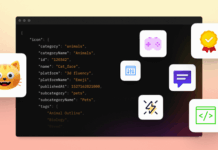 Matt Galligan (co-founder of Circa) once said: “The future of mobile is the future of everything.”. Indeed, app development is one of the most promising businesses of our time. According to recent research, the application development market is forecasted to reach $1039.89 billion by 2027, growing by 25.54 % from 2020 to 2027. The main reason for that is a growing demand for advanced technological solutions that can solve business-related problems and improve work efficiency.
Matt Galligan (co-founder of Circa) once said: “The future of mobile is the future of everything.”. Indeed, app development is one of the most promising businesses of our time. According to recent research, the application development market is forecasted to reach $1039.89 billion by 2027, growing by 25.54 % from 2020 to 2027. The main reason for that is a growing demand for advanced technological solutions that can solve business-related problems and improve work efficiency.
There are already millions of apps and the number steadily increases over the years. Of course, this means that people begin to use more and more apps. However, this also means that it becomes harder to create a custom app that will be more interesting for the users than the other ones.
In this article, we will discuss why you should invest in custom app development and will tell you about the most important points that should be taken into account during the app development process.
Why It’s A Good Idea To Build A Custom Mobile App?
“The biggest change, and the one we’re already starting to see take shape, is that globally the majority of internet usage will be done via a mobile device and for most people the mobile web will be their primary – if not their only – way of experiencing the internet.”
© Tomi Ahonen
There are billions of smartphone users and this number keeps on growing steadily. People spend most of their time on apps while using their smartphones and most of them have more than 10 apps installed. All these facts encourage many startups and business owners to invest in application development.
Custom App or Ready-Made App: What Is Better?
A custom app is an app, tailored specifically to the needs of your business and your personal purposes. Its greatest advantage is the possibility to realize your idea as it was conceived. That is why investing in custom app development appears to be a wise solution in most cases.
The ready-made app, in contrast, is universal for many businesses making it harder to achieve particular goals of a particular business. Such apps usually work as cloud services, so one has to pay for the app usage on a regular basis. Of course, this solution is more cost-effective and requires less time than custom app development. While a ready-made app may seem like an attractive way to go for almost any entrepreneur due to its affordability, it’s still a limited solution that may hinder your business growth.
Custom App Development: Benefits and Drawbacks

Hereunder is the list of the benefits and drawbacks of custom app development:
1. Scalability
When you build an app for your business, you can easily scale it from a simple MVP (Minimal Viable Product) to a full-fledged app according to the needs of your business.
2. Security
User’s personal data is the most sensitive part of an app. So, if your app operates with personal data, you need to ensure that it has a decent level of protection. Custom app development allows implementing of the best security solutions, allowing to eliminate the risks via reliable data encryption, two-factor authentication, blockchain, and other security measures.
If your users trust you, you can easily build long-term relationships with them which is definitely a great advantage for any business.
3. Individual approach
Custom app development will allow you to create a personalization strategy for each client thanks to the integration of analytic tools during the development process. They will analyze the users’ personal preferences and make personalized offers that meet their needs. This allows for creating trusting relationships with your customers.
4. You can add new features
It’s evident that customization possibilities are limited when it comes to a ready-made app as it has strictly defined functionality. New features can’t be added by demand. Custom app development, on the contrary, allows doing that.
5. It’s your product
When you build a custom app, you become its owner which means that you are investing in yourself instead of paying someone for the possibility to “rent” a third-party app. This also means that you will get unlimited control over YOUR app.
The drawbacks
1. Time and effort
Custom app development has never been an easy process. It requires a lot of time and effort: development of a simple app may take around half a year. Bespoke app requires testing, bug fixing, and many other things. This may prolong the software development process and delay the product’s launch.
2. Price
Obviously, app development is a costly solution. You need to hire a team or pay for software development company services. Moreover, if your development team faces some problems that may prolong the development process, this will cost you even more.
3. Risks
Nothing can guarantee your app’s success. This means that, in the case of failure, you will lose everything that was invested. In addition, even if you dedicate your project to a software engineer with a high level of experience, the appearance of new competitors can turn a successful product into an average app that doesn’t have high demand.
Steps To Develop An App: What To Think About In Advance?
Here is the checklist of considerations that should be taken into account for successful app development.
Choose A Platform
The choice of the right platform is an important step for successful app development. In this case, there are two most popular custom application types:
- Native app: Native app development implies the creation of an app for a specific platform (iOS or Android). It’s remarkable for its great performance and clear and easy-to-navigate interface since it’s built considering the specifics of the platform.
According to data given by Statista, by 2021, there are 3.48 million mobile applications in Google Store, and 2.22 million apps in AppStore. In fact, iPhone users have better paying capacity than Android phone users so mobile app development for this platform will allow you to earn more money. However, by building an app for Android users, you can share it among a wider audience.
However, you will have to build two separate versions of an app for iOS and Android. This requires a lot of time, resources, and effort. Besides, adjusting an app for all Android devices may be a challenging task.
- Cross-platform app: Cross-platform app development is the best choice for those who need an app that will be universal for both platforms. Such an app can cut the custom software development time and speed up the app’s launch. It’s also easier to maintain and upgrade in comparison with the native app. In fact, this is a good solution if your app doesn’t depend on native functionality. However, cross-platform apps can’t guarantee smooth performance and a convenient user interface.
Think About The User Interface
During the app development process, it’s especially important to pay special attention to design since it’s the first thing that the user sees when opening your app. That is why you need to ensure that your design and user interface are unique and tailored to the specific needs of your users.
However, if you need to save money, you can create the app’s design using a template, based on successful examples of your competitors. This will be much cheaper than creating a custom design from scratch.
Choose A Monetization Model
Around 55% of app owners face a problem connected with user engagement. In order to eliminate this problem, you need to choose the right monetization model before you proceed to the application development process. The monetization model is the way you are going to earn money from your app. Here are the most popular models.
Advertising: In-app advertising is the most common monetization model. Around 75% of apps use it. It works the next way: the data about your users’ habits and behavior is collected and provided to advertisers that then display ads in the application in the form of banners, videos, or native formats.
The greatest benefit of app development with this monetization model is that the users can use the app’s functionality for free. On the other hand, annoying advertising can lead to a drop in loyalty and an outflow of users.
Freemium: App development with the usage of this model allows you to offer a set of free basic functions, as well as additional features that can be purchased for money. Freemium is often used in games where the user gets access to the basic locations and levels, but the advanced functionality of the game needs to be purchased.
The main thing is to interest and attract a lot of users in order to further push them to purchase the paid version. However, when choosing free and paid functions, it’s important to keep a balance. If there are only a few core features, the user may not use your app long enough to be willing to pay for some extra features.
In-app purchases: App development in this model is based on the purchases of virtual goods within the application. More often, this approach is used in games where the user can buy accessories and in-game currency, and in photo and video editors where the user can buy masks and filters.
Nevertheless, this model will only work successfully in applications with highly engaged users who are willing to spend real money on virtual items. Plus, Google Play and the AppStore withhold a commission from the sale of virtual goods in applications.
Subscription: App development with the subscription involves a regular payment for access to the app’s functionality. This model is often applied to e-book libraries, CRMs, or content.
In order to succeed in this model, your content or service should be interesting for the users. It also ensures stable income and loyal users. However, as you can see, this monetization model is only applicable to certain app categories.
Select A Way To Promote Your App
In order to start monetizing your app, you need to promote it. That is why it’s recommended to arouse the users’ interest before the mobile app development process is finished.
You can do it via social networks, for example. This will guarantee the user’s engagement right from the day of your app’s launch.
Vendor
To succeed in app development, you need to find a reliable vendor that will offer you the best price-to-quality solution. You can dedicate the project to the in-house developers or resort to a software development company.
An in-house team is good for long-term projects when full dedication is needed (however, it may be too costly). Outsourcing your project to specialists from Western Europe, for example, is a good way to save money.
Conclusion
It’s hard to imagine that something in this world can reduce the growth of mobile app popularity in our lives in the near future. That is why application development can be a very good idea for your business or startup.
It will be your product that you can provide with the best level of security, add new features when needed, and create the most convenient conditions for your clients.



















Do you want to opt for a custom software development? This interesting article will help you out! Thanks for sharing.